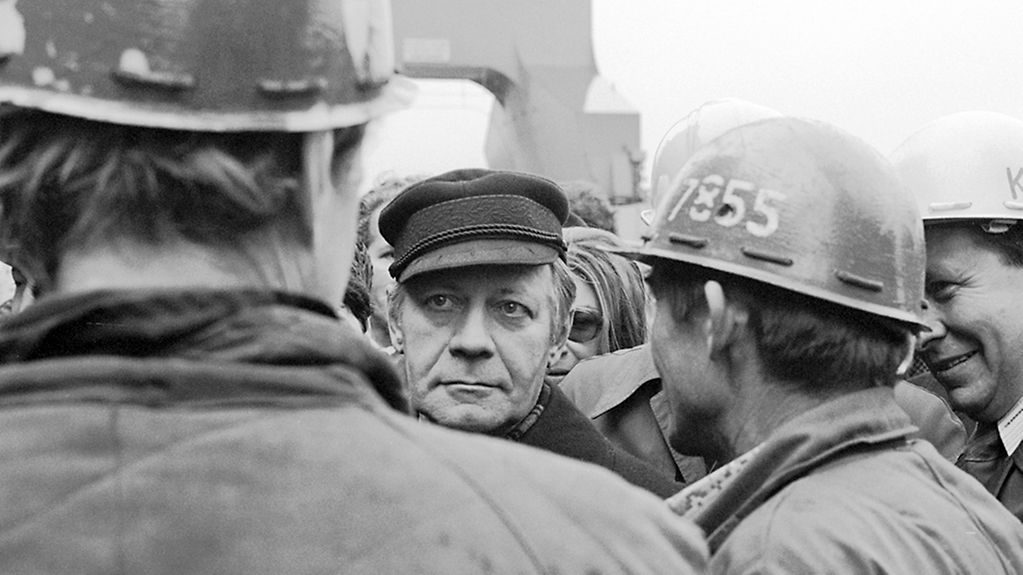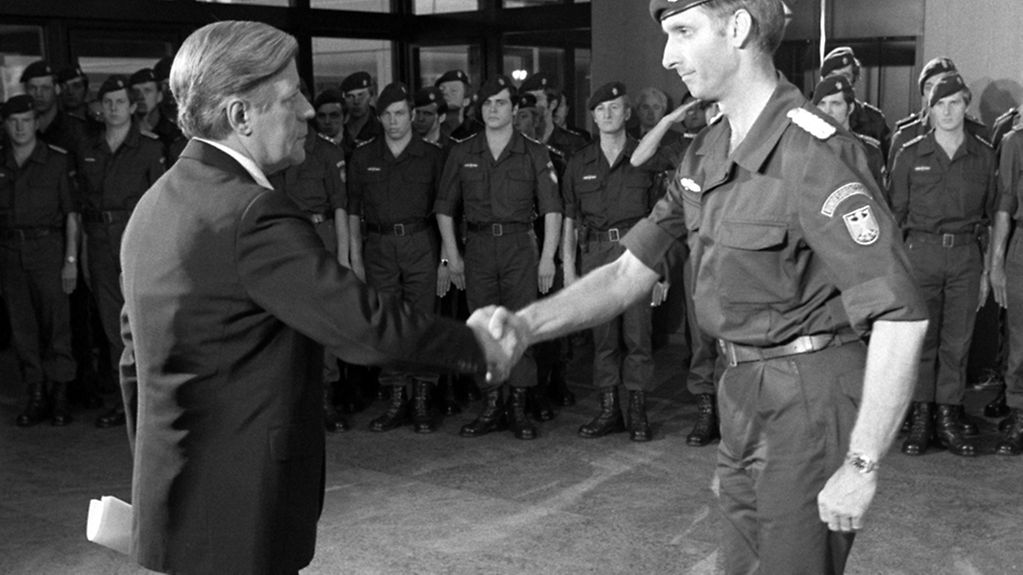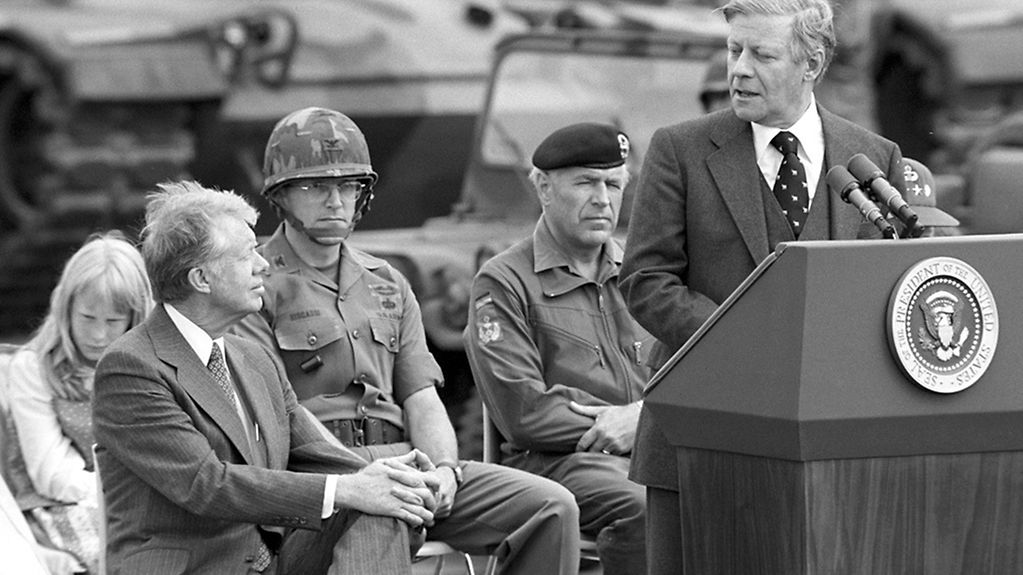Overcoming economic crises

Helmut Schmidt talking to shipyard workers
Photo: Bundesregierung/Reineke
Helmut Schmidt (SPD) continued the SPD/FDP coalition after Willy Brandt’s resignation. He had to deal with economic crises and the acts of terrorism committed by the Red Army Faction (RAF).
In 1973 the price of oil rose very quickly for the first time, mainly because of the war between Israel and the Arab states. The countries in the West suddenly realised how dependent they were on oil. Although West Germany came out of the crisis relatively unscathed, unemployment figures rose in the mid-1970s.
Chancellor Schmidt recognised that the economic problems could only be overcome if many countries cooperated. Together with French President Valéry Giscard d’Estaing he in 1975 established regular meetings between the most important economic nations. These annual “world economic summits” at which countries coordinate their economic and fiscal policy (amongst other things) are still held today.
Helmut Schmidt’s government helped further ease relations between East and West in the context of the Organization for Security and Cooperation in Europe (OSCE).
Dealing with terrorism

Helmut Schmidt welcoming the Police Special Forces
Photo: Bundesregierung/Reineke
As well as economic problems, Schmidt’s government had a second crisis to deal with: Some of the students who took part in the protest movement in the late 1960s formed a splinter group that wanted to fight the state with terrorist means.
In the autumn of 1977 West Germany was severely shaken by numerous murders. The Red Army Faction (RAF) kidnapped Hanns-Martin Schleyer, the President of the Employers’ Association, for instance, in an attempt to blackmail the authorities into releasing various prisoners. At the same time, an Arab terrorist group highjacked a Lufthansa aeroplane in another attempt to get RAF prisoners released.
A large crisis unit headed by the Federal Chancellor worked to try to save Schleyer’s life without giving in to the terrorists’ demands. In the end the GSG9, a special unit of the Federal Police, freed the passengers on the plane that had been highjacked on its way to Mogadishu. The RAF terrorists thereupon murdered the kidnapped President of the Employers’ Association.
When they saw that their plan had backfired, the imprisoned terrorists killed themselves in their cells. It was thanks to the resolute action of Chancellor Schmidt and the collaboration between democrats in the parliament that the liberal state under the rule of law was protected against further harm.
NATO Dual-Track Decision

Helmut Schmidt and Jimmy Carter
Photo: Bundesregierung/Schaack
In 1976/77 the Soviet Union began deploying SS20 medium-range nuclear missiles that were directed against Europe. NATO thereupon adopted the NATO Dual-Track Decision that provided that medium-range nuclear missiles were to be deployed – mainly in Germany – if negotiations with the Soviet Union failed.
Many people were against nuclear armament. A broad-based peace movement pressed for disarmament. However, negotiations with the Soviet Union initially failed. NATO deployed its missiles. It was not until 1987 that the United States and the Soviet Union agreed to disarm their nuclear weapons.
Domestic policy debates on the Dual-Track Decision and on NATO’s future attitude to the Soviet Union led to a crisis within the SPD/FDP coalition. The two parties also had fundamental differences of opinion on economic and fiscal policy. In 1982 this led to the end of the coalition.